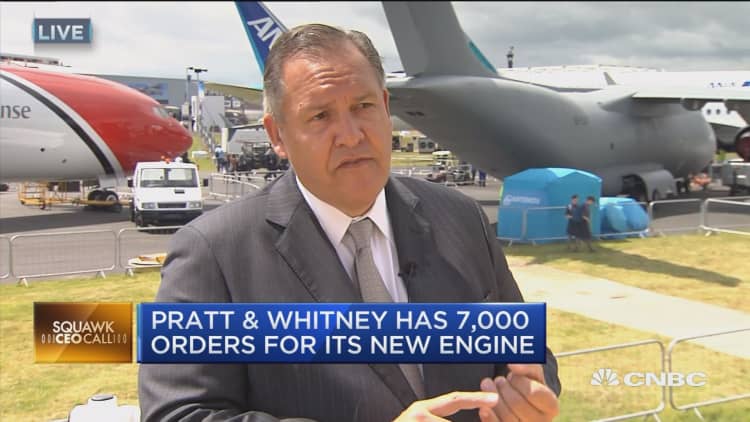
United Technologies CEO Greg Hayes said Monday the United Kingdom remains a great place to do business despite Britain's vote to leave the European Union.
The outcome of last month's referendum has cast uncertainty across the continent, as Britain must renegotiate trade terms once it formally invokes its right to leave the political and economic union.
"There was obviously some initial hysteria, concern about Brexit, but as you step back and think about it, the U.K. remains one of the most investible places that we can manufacture," Hayes said on the sidelines of the Farnborough International Airshow in England.
United Technologies, whose products include jet engines and elevators, manufactures actuation systems for the aerospace industry in west-central England. The company does over $1 billion worth of manufacturing in the country, Hayes said.
In an interview on CNBC's "Squawk Box," Hayes ticked off a number of factors that make Britain an ideal place to do business: a highly educated workforce, flexible labor rules not available elsewhere in the EU and a competitive tax policy.
"Once they get down the path or they start to understand what it means, it's hard to imagine a scenario where you're going to not see a robust market here in the U.K.," he said.
Analysts, however, are worried that such economic risks as the exit from the EU and slowing growth in China could result in fewer orders for planes, particularly for larger twin-aisle jets.
Top planemakers shrugged off worries about a faltering global economy on the opening day of the Farnborough Airshow on Monday, with Airbus announcing a $4.4 billion order and Boeing raising its 20-year forecast for jet demand.
Manufacturers have enjoyed years of strong demand, with the industry's order backlog standing at a record 13,500 planes at the end of 2015, or 9.6 years of production at current rates.
Hayes said he does not expect customers to place the "big, gigantic" orders seen in recent years. The focus for the next two to three years will be execution in winding down backlogs, he said.


